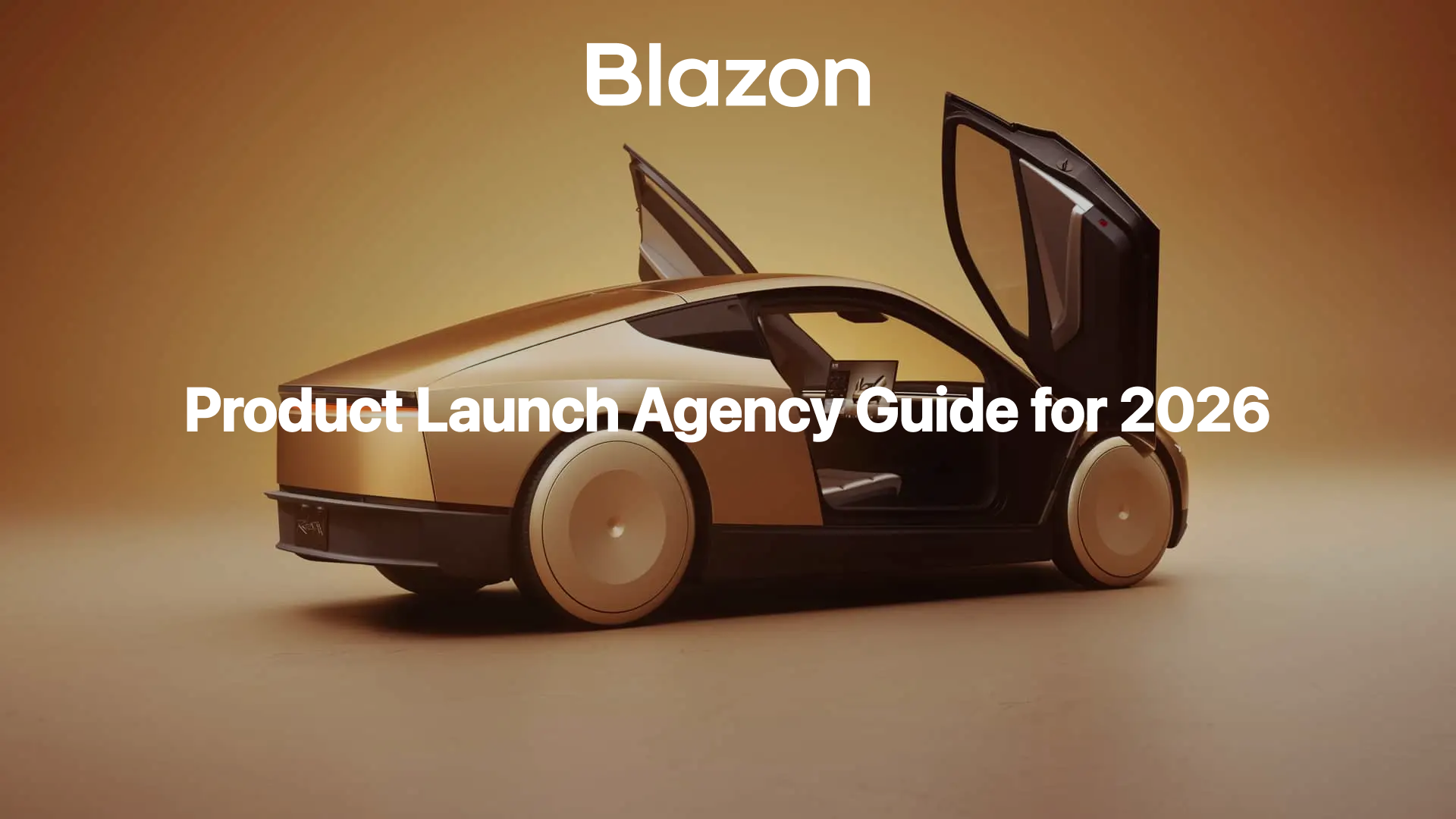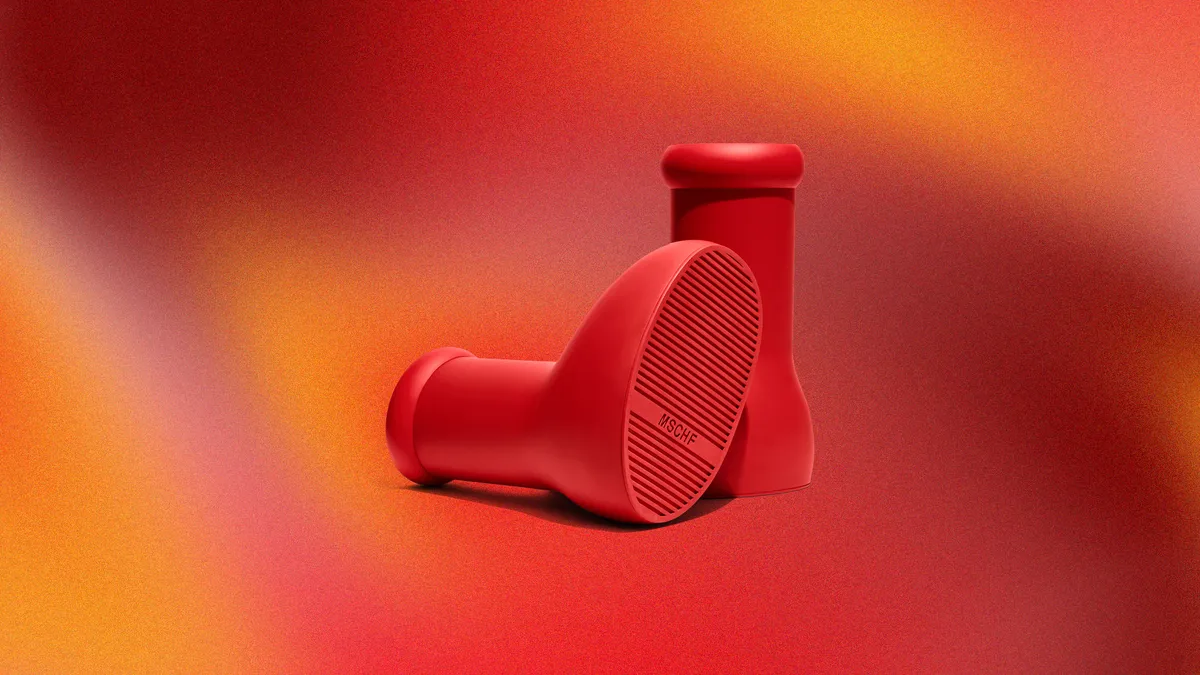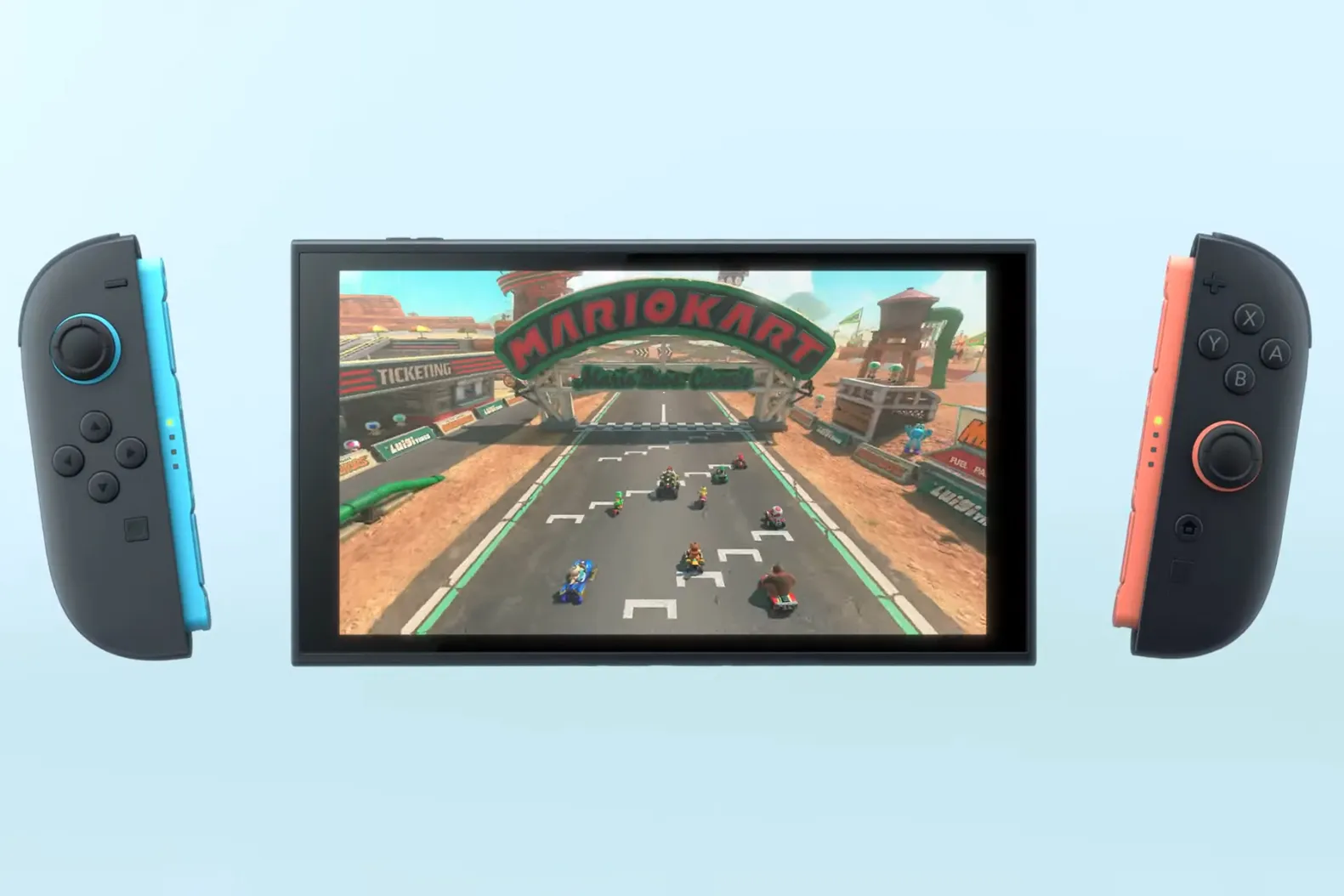

Imagine your next big idea making headlines, building massive waitlists, and selling out within hours. In 2025, the difference between a standout launch and a missed opportunity comes down to strategy, timing, and the right product launch agency.
Today’s launches face more noise, stiffer competition, and audiences with shorter attention spans than ever. Brands like Apple, Tesla, and MSCHF have mastered the art of anticipation, using insider tactics and digital-first approaches to dominate every feed.
This guide gives you the actionable steps to build hype, leverage the latest digital tools, and maximize your launch impact. From pre-launch planning and agency partnerships to hype-building and post-launch growth, you’ll learn how to master every stage of launching a product in the modern era.
The product launch landscape for 2026 is a fast-evolving arena where brands must outmaneuver fierce competition and shifting consumer expectations. A successful launch now demands not just creativity, but mastery of digital-first tactics and an understanding of how innovation, technology, and community-building intersect. Let’s explore how these changes shape the way a product launch agency approaches launches today.

In the past five years, product launches have undergone a dramatic transformation. Brands have shifted from traditional, in-person unveilings to digital-first strategies, prioritizing online engagement and global reach. Hybrid launches that blend physical and digital experiences are now commonplace.
Crowdfunding platforms like Kickstarter and Indiegogo have empowered startups to validate ideas and build communities before launch. Omnichannel strategies are essential, as brands engage customers across social, direct-to-consumer (DTC), and e-commerce channels.
Tesla’s Cybertruck online reveal is a prime example, using livestreams and viral moments to generate buzz instead of relying solely on in-person events. A product launch agency today must harness these digital channels to maximize impact.
Several trends are defining how brands capture attention and drive conversions. Waitlists, VIP access, and FOMO-driven campaigns are now standard, creating exclusivity and anticipation. AI and automation streamline launch campaigns, optimizing outreach and personalization at scale.
Platforms like Product Hunt and Shopify play pivotal roles for SaaS and DTC brands, enabling launches to reach targeted audiences quickly. Influencer and user-generated content (UGC) campaigns are critical, with data showing that 72 percent of successful launches in 2024 leveraged these tactics.
Brands like Rabbit R1 and MSCHF lead the way, using viral waitlists and unconventional drops to dominate feeds. A product launch agency must stay ahead of these trends to deliver results.
Standing out in today’s saturated digital feeds is harder than ever. Brands must navigate logistical complexities, especially when managing global launches for both physical and digital products. Privacy regulations and changes to ad platforms require agile strategies and careful data management.
Apple’s approach, with staged leaks and tightly controlled information, demonstrates the importance of narrative control. According to Product Development Statistics 2025, over 35 percent of new product launches face delays or market challenges, highlighting the need for expert guidance from a product launch agency.
Despite the challenges, there are more opportunities than ever to innovate. Building anticipation with exclusive content, early access, or VIP programs can create loyal brand advocates.
Interactive launches, such as livestreams or AR/VR experiences, engage audiences on a deeper level. Community building, both pre- and post-launch, is essential for sustained growth and feedback.
A forward-thinking product launch agency leverages these opportunities, helping brands craft memorable, hype-driven campaigns that lead to lasting success.

Launching a product in 2026 is a high-stakes endeavor. Brands face crowded digital channels, rapid innovation cycles, and sky-high consumer expectations. That is where the product launch agency steps in, orchestrating every detail from pre-launch buzz to post-launch momentum. The right agency is not just a vendor, but a strategic partner, helping brands stand out, build anticipation, and drive growth in this fiercely competitive landscape.
A product launch agency manages the complete journey of bringing a product to market. This covers strategy, creative development, and hands-on execution. Agencies integrate PR, digital marketing, and growth tactics, ensuring every campaign is tailored for today’s omnichannel world.
For example, a top-tier product launch agency will coordinate cross-platform launches involving Instagram, TikTok, YouTube, and e-commerce sites. Their expertise is vital for brands aiming to replicate the buzz of launches by Tesla or Apple, where every touchpoint is intentional. By orchestrating pre-launch teasers, influencer activations, and live events, agencies drive maximum visibility and engagement.
Timing is critical when deciding to engage a product launch agency. Brands often choose to partner when internal teams lack bandwidth or specialized expertise. If rapid scaling, international reach, or niche market entry is required, an agency provides the resources and know-how to accelerate timelines and mitigate risks.
Industry data shows that 60 percent of top-performing launches in 2024 used external agencies for campaign management. The product launch agency becomes a force multiplier, handling logistics, creative assets, and media relations, so internal teams can focus on core innovation.
A leading product launch agency offers a suite of services designed to maximize launch success. These include crowdfunding campaign management, digital advertising, influencer partnerships, and full-scale press outreach. Agencies also handle brand identity, creative asset development, and e-commerce setup for platforms like Shopify.
For brands considering crowdfunding, specialized agencies bring deep expertise in campaign design, storytelling, and audience activation. For more, see Crowdfunding campaign management insights, which details proven strategies for funding and pre-sales. This holistic approach ensures every launch is optimized for reach, conversion, and sustained momentum.
Core Services Table
Service
Description
Crowdfunding Management
Strategy, page creation, audience
Digital Advertising
Paid social, search, display
Influencer Partnerships
UGC, ambassador programs
Press & Media Relations
Outreach, embargoes, coverage
E-commerce Setup (Shopify)
Storefront design, integrations
Creative Asset Development
Imagery, video, brand collateral
Selecting the ideal product launch agency requires careful evaluation. Examine an agency’s track record, especially with launches similar to yours—physical product or SaaS. Ensure their expertise covers your sector, from DTC brands to tech innovations. Alignment with brand values and launch goals is critical for a smooth partnership.
Ask about their approach to managing waitlists, VIP access, and post-launch growth. Review case studies and testimonials for evidence of success. The right product launch agency will offer transparency, clear communication, and a proven methodology tailored to your objectives.
Blazon Agency stands out as a global leader in product launches, managing over 500 campaigns and driving 250 million dollars in sales. Their multidisciplinary team delivers tailored strategies for startups, DTC, tech, and innovation brands. With expertise in crowdfunding, digital advertising, PR, and e-commerce, Blazon Agency’s “Build, Launch, Grow” methodology ensures seamless execution from concept to market.
The agency’s portfolio includes work with Amazon, Xiaomi, and Absolut, demonstrating results across physical and digital product categories. With a global reach and a commitment to innovation, Blazon Agency is the product launch agency partner of choice for brands seeking lasting impact.

Launching a standout product in 2026 demands more than just a great idea. It takes strategic planning, digital mastery, and the right product launch agency to guide each stage. Let’s break down the essential steps, with actionable tips, proven tactics, and lessons from market leaders.
Every successful launch begins with rigorous pre-launch planning. Before you engage a product launch agency, validate your concept through market research and competitor analysis. Study industry leaders like Apple, who are known for secrecy, meticulous testing, and controlled pre-launch information flow.
Develop detailed customer personas and test your value proposition with focus groups or surveys. Set measurable KPIs to track success. Use tools like Hotjar or Google Analytics 4 for early feedback and A/B testing.
For those exploring sustainable or innovative products, consider the 5 essential steps for launching a sustainable product, which offers practical frameworks you can adapt to your own launch. Look at crowdfunding models: Kickstarter and Indiegogo are ideal for building early traction.
A product launch agency can help refine positioning, run competitor audits, and map out effective go-to-market strategies. Prioritize clean, crisp visuals of prototypes and mood boards during this phase to start building hype among stakeholders.
Generating anticipation is vital. Brands like Rabbit R1 and MSCHF excel at building waitlists and running viral “drop” models. Your product launch agency should design exclusive waitlists, VIP programs, and referral incentives that create FOMO and urgency.
Leverage Discord, Slack, and private email groups to nurture early adopters. Real-world data shows waitlisted launches see 30 percent higher day-one conversions. Consider running invite-only beta tests, offering sneak peeks, or teasing early product imagery on Instagram and TikTok.
Craft compelling narratives and share authentic behind-the-scenes content. Use branded email automation to keep your audience engaged and excited. The right product launch agency can orchestrate these digital touchpoints, ensuring your messaging is consistent and your visuals are premium and shareable.
Early hype is the foundation for a viral launch. Build a community of superfans who will amplify your message across social feeds.
A digital-first go-to-market strategy is essential for success in 2026. Work with your product launch agency to plan multi-channel campaigns across Instagram, TikTok, YouTube, and LinkedIn. Each platform requires customized creative assets, think crisp product photos, founder interviews, and cinematic launch teasers inspired by Apple’s famous keynotes.
For DTC brands, Shopify is the gold standard for online store setup. SaaS and digital products should prioritize Product Hunt launches to reach early adopters. Integrate influencer and UGC (user-generated content) campaigns for authenticity, as 72 percent of successful launches in 2024 did.
Your product launch agency should coordinate paid ads, organic content, and email sequences for maximum reach. Real-time analytics and A/B testing are crucial for optimizing spend and creative. Consider livestreaming your launch event or using countdowns to drive excitement, as Tesla does with its high-profile product reveals.
Execution is where planning meets reality. Physical product launches require inventory management, fulfillment logistics, and real-time customer support. Digital or SaaS launches focus on onboarding flows, live demos, and rapid iteration.
A product launch agency will coordinate PR, press embargoes, and influencer seeding. For maximum impact, stagger your announcements across platforms. MSCHF’s unpredictable drop times show how dominating feeds can create viral moments.
Use this table to compare launch tasks:
Task
Physical Product
Digital/SaaS Product
Inventory
Manage stock, warehouses
Not required
Fulfillment
Shipping, returns
Digital delivery/onboarding
Customer Support
Returns, replacements
Live chat, onboarding help
PR/Influencer Seeding
Unboxing, demos
Beta access, live demos
Your product launch agency ensures every piece runs smoothly, whether you’re tracking shipments or onboarding users. Use real images of your product in action to build trust and excitement at this stage.
After launch, focus shifts to growth and retention. Gather user feedback through NPS surveys and social listening. A product launch agency should help you analyze data, iterate on features, and plan retargeting or nurture campaigns.
Leverage testimonials, case studies, and UGC to build social proof. For SaaS, regular updates and feature drops keep users engaged. For DTC, consider limited-edition product drops or loyalty rewards.
Continue building community by engaging on Instagram Reels, TikTok, and private groups. Monitor ROI and adjust tactics for future launches. A product launch agency is your partner in scaling success, helping you evolve from a single launch to a market leader.
By mastering each step and working with the right product launch agency, you can emulate the success of Apple, Tesla, and MSCHF, building hype, dominating feeds, and achieving outstanding results in 2026 and beyond.

Imagine launching a product and instantly capturing global attention. The most successful brands make this look effortless, but behind every viral moment is a meticulously crafted strategy. Today’s product launch agency must master hype-building, blending creativity, timing, and digital savvy to dominate feeds and convert anticipation into action.
A viral product launch is never an accident. Brands like Tesla, Apple, and MSCHF excel at building anticipation well before launch day. They tease their audience with cryptic images, mysterious leaks, and strategic countdowns across social platforms.
Consider Tesla’s Cybertruck reveal. Instead of a standard press release, Tesla live-streamed the event, drawing millions of viewers and igniting a media frenzy. The now-famous shattered window moment became a global talking point, sparking debates about whether it was planned or spontaneous. This level of anticipation and conversation is what every product launch agency aims to achieve for its clients.
To replicate this effect:
When executed correctly, these tactics ensure your launch is not just seen, but remembered.
MSCHF has redefined how brands approach product launches. Their surprise drops, gamified experiences, and meme-worthy campaigns capture attention within seconds. Each launch is designed for shareability, often trending on Twitter minutes after release.
Product launch agency teams can learn from these unconventional methods by:
For inspiration, review Product launch case studies that break down the strategies behind viral campaigns from both established and emerging brands. These real-world examples highlight how unconventional tactics can transform a standard launch into a cultural moment.
Visual storytelling is a cornerstone of every memorable launch. Apple’s product events set the bar with cinematic videos and crisp, real images that make every feature shine. Clean and professional imagery not only draws attention, it builds trust and credibility.
A product launch agency should always prioritize:
Impeccable visuals paired with compelling storytelling create a lasting impression, making the launch feel like an event rather than just a release.
The final ingredient for lasting hype is community engagement. Early adopters and superfans are powerful amplifiers when given the right tools and platforms. Brands like Rabbit R1 and MSCHF actively encourage user-generated content, reviews, and real-time sharing.
Effective product launch agency strategies include:
By empowering the community, brands transform customers into advocates, driving ongoing excitement well beyond launch day.
Digital innovation is reshaping every successful product launch agency’s playbook. From pre-launch to post-launch, the right mix of tools and platforms determines whether a new product captures attention or gets lost in the noise.
Today’s leading brands like Tesla, Apple, and MSCHF have mastered this digital-first approach. Let’s break down the essential platforms, tools, and metrics you need to replicate their success and keep your product launch agency at the forefront.
A product launch agency must leverage the most impactful platforms to build hype and drive conversions. For DTC brands, Shopify is the gold standard for online stores, offering seamless integration with payment gateways, inventory, and analytics.
Product Hunt is the go-to for SaaS and digital tool launches, providing instant visibility among early adopters and tech influencers. Crowdfunding sites like Kickstarter and Indiegogo remain key for pre-sales and community-driven launches, helping validate ideas before scaling up.
The Product Launch Software Market Insights 2025 report highlights how these platforms are evolving, with new features supporting waitlists, referral programs, and VIP access to maximize launch-day impact.
Building anticipation requires more than a great product. The best product launch agency will deploy a suite of digital tools to nurture leads and amplify excitement.
For paid campaigns and influencer partnerships, consider adopting advanced digital advertising and marketing strategies to reach specific audiences and optimize ROI. These tools are critical for both physical products and SaaS, ensuring every stage of your launch is data-driven.
A product launch agency must track the right metrics to measure success and iterate quickly. Key indicators include:
Monitoring these metrics helps agencies and brands fine-tune campaigns, adjust messaging, and sustain momentum beyond launch day.
Learning from industry leaders is crucial for any product launch agency. Tesla’s livestreamed Cybertruck reveal drew millions of viewers and generated instant social buzz. Rabbit R1 amassed over 100,000 waitlist signups within 48 hours, proving the power of pre-launch community building.
Shopify DTC launches that use influencer UGC regularly see 60 percent higher conversion rates, while MSCHF’s surprise drops trend on social media within minutes. These benchmarks set the standard for what’s possible when your product launch agency harnesses digital tools, platforms, and data-driven tactics to dominate feeds and build lasting excitement.
Launching a physical product is a different beast from releasing a digital or SaaS offering. Each path demands a unique strategy, and the right product launch agency can help you avoid costly missteps.
Physical launches require precise inventory planning, manufacturing oversight, and global logistics. Delays or mismanaged fulfillment risk damaging your brand’s reputation from day one. Digital and SaaS launches, on the other hand, hinge on seamless onboarding, user retention, and rapid feature adoption. Churn can spike if user experience is not intuitive or if hype outpaces actual value.
Hybrid models, like Kuura Ring’s combination of wearable hardware and app, blend these challenges. Success here often comes down to integrated storytelling and flawless execution across channels.
Launch Type
Core Challenges
Key Tactics
Physical
Manufacturing, fulfillment
Pre-orders, phased shipping, VIP waitlists
Digital/SaaS
Onboarding, churn, adoption
Free trials, live demos, community support
Hybrid
Both sets above
Unified launch, cross-platform marketing
A product launch agency with expertise in both realms can anticipate scaling issues and prevent overpromising. According to the Digital Agency Industry Report 2025, brands that leverage specialized agencies see smoother rollouts and stronger early traction.
Careful planning, crisp imagery, and real-time feedback loops are vital, whether you’re launching hardware, software, or both.
After exploring how brands like Apple, Tesla, and MSCHF launch products that turn heads, you can see the impact of strategic planning, digital-first tactics, and the right agency partnership. If you’re ready to take your next launch from idea to market leader, with tailored strategies, expert campaign management, and measurable results.
Let’s connect. I’d love to learn about your goals and help you navigate the 2026 launch landscape with confidence.
Let's Talk
🇬🇧 LONDON
Blazon Agency
86-90 Paul St
Shoreditch, London
EC2A 4NE
+44 20 3870 3280
🇺🇸 NEW YORK
B55 Water St
Floor 3, Brooklyn,
NY 11201,
United States
+1 (332) 333-3875
© Blazon Agency Limited • All rights reserved • UK Company Number 10181993 • VAT Number 277957141